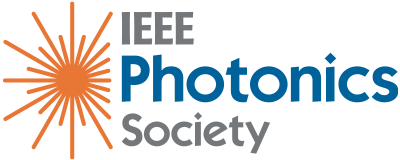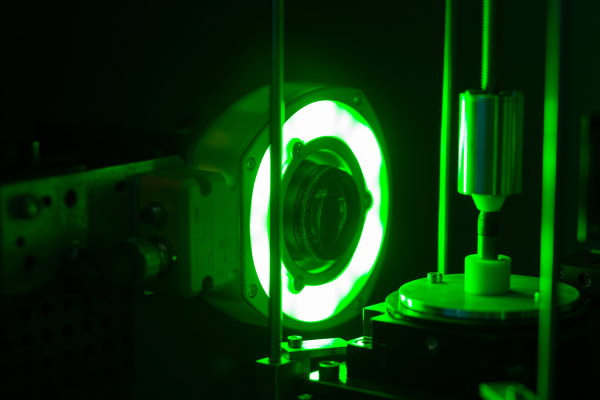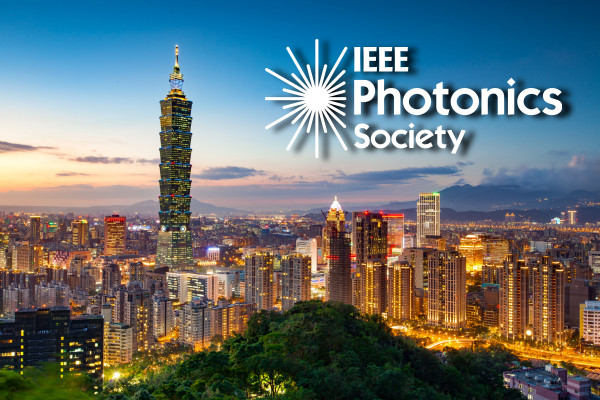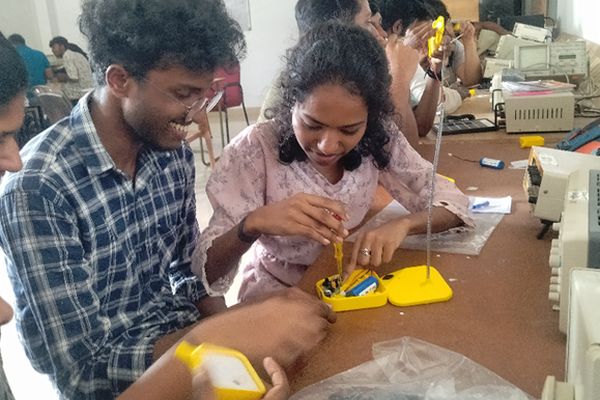In this edition of the “Photonics Worldwide – This is my Lab” column, we would like to introduce you to Sarah Masaad and Devika Dass, who are pursuing their Ph.D. research in Belgium and Ireland, respectively. Sarah works on designing novel computational technologies beyond the standard digital solutions to mitigate the impairments in the optical fiber communication systems at the Photonics Research Group at Ghent University in Belgium. Devika’s research at the Radio and Optical Communication Lab in DCU, Ireland focuses on the converged/hybrid optical and radio transmission systems and flexible optical data-center communication systems. If you are a Ph.D. student or an early career researcher and would like the opportunity to be featured in this column, please reach out to me.
Amol Delmade
amoldelmade@ieee.org
 My name is Sarah Masaad, I’m a Ph.D student in the Photonics Research Group at Ghent University – imec, Belgium. I’m from Jordan but embarked on an international journey from a very early age. Along the way, I earned a BSc in Electronics Engineering from the University of Bahrain and then did a double Master’s degree in Telecommunications and Informatics at Aston University in the UK and NKUA in Athens, Greece. I didn’t start off doing photonics, but in the words of my promoter: “it’s only natural to move towards the light”.
My name is Sarah Masaad, I’m a Ph.D student in the Photonics Research Group at Ghent University – imec, Belgium. I’m from Jordan but embarked on an international journey from a very early age. Along the way, I earned a BSc in Electronics Engineering from the University of Bahrain and then did a double Master’s degree in Telecommunications and Informatics at Aston University in the UK and NKUA in Athens, Greece. I didn’t start off doing photonics, but in the words of my promoter: “it’s only natural to move towards the light”.
My Ph.D. is done in the context of a Marie Curie project called PostDigital where a consortium of researchers looks into computational technologies beyond the standard digital solutions. In my research project, I investigate the use of photonic reservoir computing as an integrated chip to resolve telecommunication problems like dispersion, Kerr nonlinearities, and receiver distortions. This offloads some of the standard digital signal processing into the optical domain where signals can be processed faster and with lower power consumption. Most of my work thus far involved simulations, with sporadic lab measurements (hence the absence of a cool lab photo and we make do with a light-shadow photo instead). The results achieved show successful equalization and performance gains in a range of transmission scenarios.

I’m Devika Dass, a Ph.D. student working in the Radio and Optical Communications lab at Dublin City University, Dublin, Ireland. As a child, I was quite inquisitive and looked out for reasons for every phenomenon I see. I think I started my journey as a researcher back then! And to my delight, Science
answered several questions I had, and this is the reason why I decided to take it up for higher studies. From undergraduate to graduate program and in research projects I pursued the field of Wireless and Optical Communications. During my master’s studies, I got a taste of carrying out a pure research-based job at the National Physical Laboratory, India. I learnt about the scattering/absorption of electromagnetic radiations depending upon the physiochemical properties of tropospheric aerosols in Delhi’s atmosphere and modelled attenuation of Free Space Optical Communication for 5G networks in an urban environment.
I love going through the process of making a discovery and feel excited about carrying out research in the vast field of Communication Engineering.
I started my Ph.D. in 2019 under the supervision of Dr. Colm Browning in the areas of converged/hybrid optical and radio transmission systems and flexible optical data-center communication systems. I have worked on the characterization of a novel micro-ring resonator based dual laser module as a potential optical source in future data centers, millimeter-wave signals generation using optical heterodyning and converged
optical and wireless communication networks. My research studies also encompass the use of advanced modulation formats to further increase the data rates in the above mentioned applications. The interdisciplinary nature of the work involved in this project, coupled with its growing significance in the domain of future communications (i.e. beyond 5G and 6G), gives me ample scope for fundamental research. This allows me to make new discoveries and generate impactful results that I can disseminate to my scientific peers as well as the general public.
Light brightens the mind surrounded by the darkness of nescience
Devika




